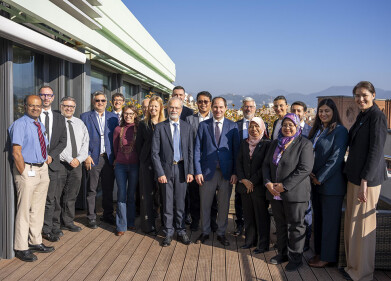Air clean up
What Is California's Cap and Trade Policy?
Aug 01 2017
Just weeks after President Donald Trump announced his decision to renege on the USA’s commitment to the Paris climate agreement, Californian litigators have elected to extend the state’s forward-thinking cap and trade policy.
Originally set to end in 2020, the policy requires factories, power plants and other businesses to buy permits controlling the amount of pollutants they are legally able to release and has been extended for another 10 years.
Curbing carbon emissions
Initially introduced on January 1st 2013, California’s cap and trade policy means that large industrial factories and power plants were required to cover all of their emissions with the appropriate amount of permits, which could be freely bought and sold on an open market.
At the beginning of 2015, the law was extended to encompass fuel distributors, such as gas stations and heating companies, which covered a massive 85% of the state’s greenhouse gas emissions. As the second biggest state in terms of fossil fuel production in the whole of the US (and perhaps the one which has suffered most from the effects of climate change), California’s pledge to peg back emissions by 16% before 2020 shows Governor Jerry Brown’s commitment to tackling this global issue.
Now, legislators have voted to extend the policy for a further decade, aiming to bring down those emissions by 40% before 2030. Governor Brown said the move showed responsibility and courage, especially in the face of opposition to climate change incentives from President Trump. “Tonight, California stood tall and once again, boldly confronted the existential threat of our time,” he declared. “That's what good government looks like.”
Not everyone in agreement
Despite the measure, not everyone is in agreement with Governor Brown. Conservatives predict that it will have a detrimental effect on the poor by raising prices for fuel, energy and food, while the State Senator Andy Vidak even went as far as to say it would have zero impact on climate change.
On the other side of the coin, concerned environmentalists have criticised the policy for not going far enough in penalising oil companies and that just charging for emissions is not enough; we must actively work to remove contaminants from our airwaves. In addition to carbon capture research, a big market for chemicals to capture mercury has also developed over recent years.
Regardless of these criticisms, the State Assembly eventually voted overwhelmingly to approve the legislation (55 to 21) and it has already been given the green light by Governor Brown. It’s not the first time that California has led by example when it comes to environmental policy, either. Back in 2014, the state passed initiatives to reduce emissions from incoming cargo ships which required vessels to power at least 50% of their energy needs from electrical sources while in port.
Events
Feb 05 2025 Nantes, France
Feb 16 2025 Kampala, Uganda
Feb 26 2025 Chennai, India
Feb 26 2025 Tulsa, OK, USA
WATERTECH CHINA (GUANGDONG) 2025
Mar 05 2025 Guangdong, China












